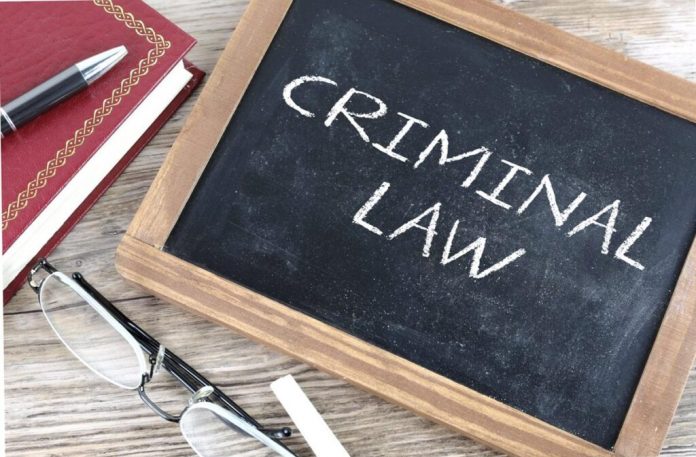This article is written by Upasana Sarkar, a student at Jogesh Chandra Chaudhuri Law College. This article aims to provide an understanding of Section 205 CrPC, 1973. It provides a detailed analysis of Section 205 CrPC and the provision for exemption from personal appearance by the accused.
It has been published by Rachit Garg.
Table of Contents
Introduction
The Code of Criminal Procedure,1973 states that the accused should be given a chance to defend himself. The Indian legal system always follows the principle that if a hundred guilty persons are acquitted, then also one innocent should not be punished. Therefore, an accused person is always considered innocent unless and until he is proven guilty in the eyes of the law. If his guilt is proven, he gets convicted. He is then sent to prison to serve his sentence. An accused has certain rights during and after the trial. This legal system has certain provisions that are largely in favour of the accused. One such provision is Section 205 of the Criminal Procedure Code. This section talks about the accused’s exemption from personal appearance in court under certain circumstances.
Provisions under which the accused can seek exemption from personal appearance
The general rule under Section 273 of the Criminal Procedure Code is that the evidence taken in the course of trial shall be taken in the presence of the accused as it is made for protecting the interest of the accused. But under certain circumstances, the CrPC has provisions to exempt an accused from making a personal appearance. Though it is not a right of the accused but at the discretion of the court.
This exemption is granted under Section 205 or Section 317 of the CrPC. When both sections are ready together, it becomes clear that the court is empowered to exempt an accused from making a personal appearance. This exemption can be given at all stages. A person can be exempted right from the stage of commencement of the proceedings under Section 205. On the other hand, under Section 317, the accused gets this right after the commencement of an inquiry or trial. Thus, the accused is entitled to seek exemption from personal appearance from the initial stage to the final stage. He is not required to appear personally to seek an exemption. Section 205(1) lays down that the magistrate, at the stage of issuing summons, may dispense with the personal attendance of the accused if he finds reasons to do so and permit him to appear through his plea.
In the case of Ajit Kumar Chakraborty v. Serampore Municipality, (1989), it was held that even in the absence of any prayer by the accused for exemption from personal appearance, it could be granted by the magistrate at his discretion.
Difference between Section 205 and 317 CrPC
Section 317 deals with the exemption from the appearance of the accused in trial in a broader sense. It states that if the judge or magistrate is satisfied, the trial can be held without the accused under certain circumstances, which are as follows:
- the personal attendance of the accused before the Court is not compulsory in the interest of justice, or
- the accused continuously disturbs the Court proceedings, or
- if the accused is represented by a pleader, he may be exempted from attending court at the inquiry or trial stage.
Section 205 also deals with the accused’s exemption from personal appearance, but in a narrower sense.
Tabular representation of difference between Section 205 and 317 of the CrPC
| Section 317 CrPC | Section 205 CrPC |
| The power under Section 317 CrPC can be exercised by both the magistrate as well as the session judge. | The power under Section 205 CrPC can be exercised only by a magistrate. |
| Sec 205 would be applicable when the proceedings have begun before the magistrate and charges are still left to be framed. | Section 317 would be applicable during the trial stage, i.e., after the charges have been framed. |
| Under Section 205 CrPC, an application can be filed at the time of the accused’s first appearance, claiming the exemption from appearance. | Under Section 317 CrPC, the court is empowered to dispense with the personal attendance of the accused for proceeding with further steps in the case at the stage of inquiries and trials. |
Section 205 CrPC: a detailed analysis
Section 205 of the Code of Criminal Procedure, 1973, states that the magistrate may dispense with the personal attendance of an accused if he thinks it is reasonable to do so at his discretion.
The main reason for the formulation of this Section is based on Section 273 CrPC. It contemplates that evidence has to be taken in the presence of the accused. Section 205 provides an exception to that. In some cases, the evidence can be taken in the presence of the pleader at the discretion of the magistrate. Such discretion can be exercised in rare cases under certain circumstances where it seems reasonable.
Scope and object of Section 205 CrPC
Scope of Section 205 CrPC
Section 205 of the Code of Criminal Procedure is introduced to grant the accused exemption from personal appearance because of his personal problems. He might face certain difficulties appearing before the court during the proceedings because of the distance factor while residing or carrying on business purposes
Object of Section 205 CrPC
The object of Section 205 is to provide an alternative solution to the accused where he cannot be present in person at the Court during the trial and permit another person to appear on his behalf who will act as his pleader.
The Section also says that the magistrate can also summon him at any time during the trial when he finds his attendance necessary for inquiring into or trying the case at any stage of the proceedings.
Is the presence of the accused at the time of application under 205 CrPC mandatory
Under Section 205 CrPC, it is mandatory for the accused to be present at the first hearing when an application for exemption from appearance is pronounced in court; otherwise, the magistrate may reject the application then and there. The accused is required to make this application in the first stage without fail; otherwise, the application will not be maintainable at a subsequent stage.
Can an accused be granted exemption from personal appearance under Section 205 CrPC
Under Section 205 of the Code of Criminal Procedure, 1973, a magistrate has the power to grant the accused an exemption from personal attendance in court when he is represented by his pleader. The pleader will be present during the trial on behalf of the accused. The magistrate can grant the accused an exemption from personal appearance only after going through the facts and circumstances of the case.
Conditions imposed for grant of exemption under Section 205
The various conditions that are imposed for the grant of exemption under Section 205 are as follows:
- The pleader of the accused would not dispute the accused’s identity as a particular accused in the case;
- A counsel will be present in his absence on all posting dates;
- The accused has no objection to taking evidence in his remission;
- That the accused should be present on such dates when called upon by the court.
Factors considered by the court for grant of exemptions
Elements considered by the court for granting exemptions are as follows:
- nature of allegations
- behaviour of accused
- distance factor while residing or carrying on business
- difficulty in personal appearance of the accused
- prejudice to the complainant
Situations where a magistrate may implement Section 205
There is no specific rule to identify under what circumstances an accused can be exempted. It varies from case to case. It is based on the discretionary power of the magistrate or judge. But it cannot be used arbitrarily without reason. It can only be granted under specific conditions.
Precautions need to be taken by the magistrate while granting exemption under Section 205 CrPC
When a person is exempted from personal appearance at the discretion of the magistrate, he may ask the accused to give an undertaking by way of an affidavit on the following subjects:
- A narration of facts to satisfy the court of his actual difficulties to be physically present in the court during the trial. One of the important factors is physical distance.
- An assurance that no prejudice would be caused to him by dispensing with the accused’s personal appearance during such questioning in any manner.
- An affirmation that he would not raise any grievance on that score at any stage of the trial.
- An assurance that, if at any stage of the proceeding, the accused is required to appear in court during the trial, he shall have to appear in person.
- An undertaking to the satisfaction of the court that he would not dispute his identity as a particular accused in the case.
- That a counsel, as a representative of the party, would be present in court and he has no objection to taking evidence in his absence.
Approaches to exemption under Section 205 CrPC
The court adopts a liberal approach in most cases and a strict approach in some rare cases, while granting exemption from the personal appearance of the accused. While excusing the accused from attending the proceedings, he can put forth any number of conditions that seem reasonable.
Liberal or generous approach to exemption
Courts usually follow a liberal or general approach to exempting an accused from personal appearance. The reason behind exempting an accused from personal appearance is to dispose of the case smoothly and expeditiously. The hearing should not be adjourned only because of the absence of the accused.
The accused are asked to be summoned by the court only when it is necessary for them to be present in the interest of the case from time to time. The presence of the accused might be required for some kind of evidence or for identifying the witnesses. The accused are also exempted from the personal appearance when they reside or work in a different district or state. In cases where the accused are old and sick people, daily wage earners, industrialists, factory workers, and so on, the court should use discretion generously in all trivial and technical cases.
Strict approach
The court also follows a strict approach in certain cases where the crime committed by the accused is very severe. The courts, while considering an application for grant of exemptions from personal appearance, in cases where the allegations are serious, exercise their discretion very cautiously. The courts have also disagreed to grant exemptions where they would delay the proceedings or hinder the cause of identification. Therefore, it can be concluded that the assessment differs from case to case.
Judicial pronouncements of Section 205 CrPC
- In the case of Cardinal Mar George Alencherry v. Joshi Varghese & Ors., (2022), the Kerala High Court, while observing the case for exemption from personal appearance, stated that when an exemption is appealed for the first appearance, the requirements should be more stringent.
- In the case of Sanjay Jain v. Unknown, (2021), the Calcutta High Court stated that a magistrate cannot mechanically impose conditions on an order dispensing the personal appearance of an accused under Section 205 CrPC.
- In the case of Anita Rai v. The State of Madhya Pradesh, (2022), the Supreme Court quashed a magistrate’s order refusing to dispense with the personal appearance of the accused, who lives thousands of miles away from the court of trial where the case was filed under Section 498A.
Conclusion
The Indian legal system is liberal in most cases while granting accused persons exemption from personal appearance. It is at the judicial discretion of the magistrate to dispense with the personal appearance of an accused depending upon the circumstances of the case. In exceptional cases where the magistrate finds it reasonable to do so, the court must grant the accused’s exemption from personal appearance.
Under Section 205, the power given to the magistrate is very wide but cannot be used arbitrarily. The magistrate, at any stage, can use his discretionary power in such cases where it is absolutely necessary or reasonable to do so. Therefore, it can be concluded that in cases where the personal presence of the accused imposes immense suffering on him, the court must grant exemption. The exemption is granted after going through the facts of the cases in detail where the attendance of the accused is not compulsory.
FAQs on Section 205, CrPC
Can exemption from personal appearance under Section 205 be termed as ‘total exemption’ from the whole trial?
The Court, in various judgments, stated that the exemption from personal appearance by a magistrate can last until the conclusion of trial unless the magistrate thinks it necessary to call him at any stage in the interest of justice.
What happens if the accused fails to appear during the trial in person if needed?
If the accused fails to appear in person at any stage of the trial when called upon, the bond shall be declared forfeited, and the bondsmen are given a time period of thirty days to produce the accused and show cause why a decree should not be rendered against them for the amount of their bond.
References
- https://corporate.cyrilamarchandblogs.com/2021/07/can-an-accused-be-granted-exemption-from-personal-appearance-understanding-section-205-and-317-of-the-code-of-criminal-procedure-1973/
- https://www.livelaw.in/tags/section-205-crpc
- https://indiankanoon.org/doc/1245435/#:~:text=205.,to%20appear%20by%20his%20pleader.
Students of Lawsikho courses regularly produce writing assignments and work on practical exercises as a part of their coursework and develop themselves in real-life practical skills.
LawSikho has created a telegram group for exchanging legal knowledge, referrals, and various opportunities. You can click on this link and join:
Follow us on Instagram and subscribe to our YouTube channel for more amazing legal content.
 Serato DJ Crack 2025Serato DJ PRO Crack
Serato DJ Crack 2025Serato DJ PRO Crack












 Allow notifications
Allow notifications


